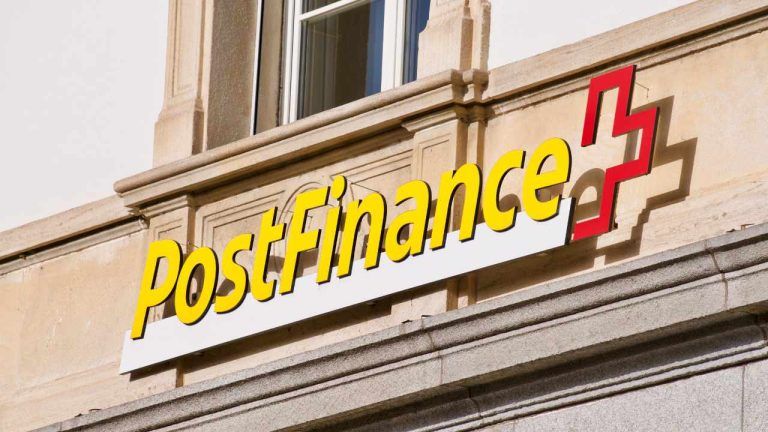 In January, Swiss gold exports to the U.S. reached a record high of 193 metric tons, driven by fears of potential tariffs. This surge, exceeding the total for 2024, was triggered by a premium on Comex gold futures, creating a profitable opportunity for traders to deliver gold to U.S. warehouses. Due to differing bar sizes […]
In January, Swiss gold exports to the U.S. reached a record high of 193 metric tons, driven by fears of potential tariffs. This surge, exceeding the total for 2024, was triggered by a premium on Comex gold futures, creating a profitable opportunity for traders to deliver gold to U.S. warehouses. Due to differing bar sizes […]
Union Bank of Switzerland (UBS), the largest bank in Switzerland, is testing a tokenized gold product on Ethereum (ETH) layer-2 scaling solution ZKsync (ZK). In a new thread on the social media platform X, the developers behind ZKsync say that UBS is testing out its tokenized gold investment products on the blockchain as a means […]
The post Switzerland’s Largest Bank Tests Tokenized Gold Product on Ethereum Layer-2 ZKsync appeared first on The Daily Hodl.

US-based crypto exchange Coinbase has commissioned a study to understand how people in Argentina, Kenya, Philippines and Switzerland view crypto and blockchain technology as a means of improving their country’s financial system. The study, conducted by market research and consulting firm Ipsos, shows that the majority of adults in all four nations believe that the […]
The post Over Two-Thirds of People in Four Countries See Crypto As Solution to Outdated Financial System: Coinbase Study appeared first on The Daily Hodl.
 Swiss state-owned bank Post Finance AG has expanded its digital-asset offering by introducing staking for ethereum (ETH), allowing holders to earn passive income. The bank plans to add staking for other tokens soon. Post Finance, which started trading and custody services for cryptocurrencies nearly a year ago, is the first systemically important bank to offer […]
Swiss state-owned bank Post Finance AG has expanded its digital-asset offering by introducing staking for ethereum (ETH), allowing holders to earn passive income. The bank plans to add staking for other tokens soon. Post Finance, which started trading and custody services for cryptocurrencies nearly a year ago, is the first systemically important bank to offer […]
A new proposal that would mandate the Swiss National Bank to hold Bitcoin (BTC) is now gathering signatures. According to Giw Zanganeh, VP of Energy and Mining at stablecoin issuer giant Tether who helped create the initiative, the proposal needs 100,000 signatures from Swiss citizens to be sent to a public referendum. Says Zanganeh, “Today […]
The post New Proposal To Mandate Swiss National Bank To Hold Bitcoin on Balance Sheet Set in Motion appeared first on The Daily Hodl.
 Christian Angermayer, a billionaire crypto investor, has reportedly moved from London to Switzerland as the UK considers tightening tax policies on offshore wealth. Angermayer’s relocation signals the potential departure of other wealthy individuals fearing future tax hikes on non-domiciled tax arrangements. Crypto Investor Angermayer Leaves London Over Tax Concerns Billionaire crypto investor Christian Angermayer has […]
Christian Angermayer, a billionaire crypto investor, has reportedly moved from London to Switzerland as the UK considers tightening tax policies on offshore wealth. Angermayer’s relocation signals the potential departure of other wealthy individuals fearing future tax hikes on non-domiciled tax arrangements. Crypto Investor Angermayer Leaves London Over Tax Concerns Billionaire crypto investor Christian Angermayer has […] BBVA has integrated stablecoin USDC into its services in Switzerland, allowing institutional clients to manage USDC alongside traditional investments. This move enhances efficiency and enables faster, secure crypto trading. The USDC addition follows previous integrations of bitcoin and ether, expanding BBVA’s digital asset solutions for clients. BBVA Adds USDC to Enhance Institutional Crypto Services in […]
BBVA has integrated stablecoin USDC into its services in Switzerland, allowing institutional clients to manage USDC alongside traditional investments. This move enhances efficiency and enables faster, secure crypto trading. The USDC addition follows previous integrations of bitcoin and ether, expanding BBVA’s digital asset solutions for clients. BBVA Adds USDC to Enhance Institutional Crypto Services in […]

Bitcoin journalist Joe Hall tests Lugano, Switzerland, to see if it truly merits the title of the world’s most crypto-friendly town.
Bitcoin journalist Joe Hall recently visited Lugano, a Swiss city at the forefront of cryptocurrency payments. Known for its progressive embrace of digital currencies, Lugano has become a leading hub for Bitcoin transactions in recent years. Hall explored the city’s Bitcoin School, which educates the public on blockchain technology and cryptocurrency use, highlighting Lugano’s commitment to fostering a crypto-friendly environment.
During his visit, Hall interviewed industry giants like Adam Back, CEO of Blockstream, and Paolo Ardoino, CEO of Tether. These conversations provided insights into Bitcoin’s future and emphasized Lugano’s role as a center for crypto innovation.
A major focus of Hall’s trip was to investigate whether it is truly possible to survive in Lugano using only Bitcoin (BTC). He tested the practicality of Bitcoin payments for everyday expenses, from dining to shopping. His experience revealed that Lugano not only supports but actively encourages the use of Bitcoin, making it feasible to live a Bitcoin-based lifestyle.
 The chairman of the Swiss National Bank has expressed reservations about incorporating bitcoin into the central bank’s currency reserves. He stated that no decision has been made yet to invest in bitcoin, underscoring the necessity for currency reserves to be liquid, sustainable, and easily tradable, given their use in international payments. Swiss National Bank on […]
The chairman of the Swiss National Bank has expressed reservations about incorporating bitcoin into the central bank’s currency reserves. He stated that no decision has been made yet to invest in bitcoin, underscoring the necessity for currency reserves to be liquid, sustainable, and easily tradable, given their use in international payments. Swiss National Bank on […] Yves Bennaïm, founder and chair of 2B4CH, a Swiss pro-Bitcoin think tank, is launching a popular initiative to amend the country’s constitution to allow its central bank to purchase and hold bitcoin. The initiative is also supported by Bitcoin Suisse President Luzius Meisser, who believes the bank should add bitcoin to its reserves. A Reform […]
Yves Bennaïm, founder and chair of 2B4CH, a Swiss pro-Bitcoin think tank, is launching a popular initiative to amend the country’s constitution to allow its central bank to purchase and hold bitcoin. The initiative is also supported by Bitcoin Suisse President Luzius Meisser, who believes the bank should add bitcoin to its reserves. A Reform […]